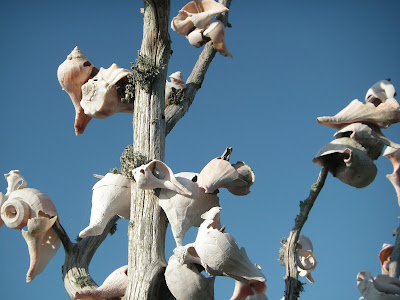I have a PAIN -- that's an acronym. A very apt acronym. It stands for Pain In the Ass Neighbor. This is someone who's lived in this building longer than I have so that his rent stabilized status has made his studio an incredible bargain. He grew up a kibutznik and deeply believes there will always be someone around to who has what he needs if he doesn't think of getting it for himself. It's been everything from ice cubes to eggs to soy sauce -- you name it. My self-sufficient WASP background makes it almost impossible for me to consider asking someone else for something I forgot to buy for myself, in fact I don't remember ever doing so. If I don't have it I go get it or I do without. A great cultural gap - worsened by the fact that I also believe in helping others in need -- such a damned feminine attitude! But then it could be considered the kindness the Dalai Lama talks about. Or a psychiatrist might call it a pathological need to be needed - and I would disagree.
Anyway the PAIN calls me with whatever is on his mind that he has no one else to tell it to. Like this morning at 7:30. "Did you hear that helicopter?" "Yes. It seemed to be right overhead." "It woke me up." "I was already up." "I went to the roof to see where it was." "Was someone up there trying to suicide?" "No, the helicopter was about a block away. Then there was a fire truck." "Okay, some accident or maybe a suicide there. You should go back to bed, I'm going to work." Was this call necessary?
Yesterday: "Did you see what happened to the stock market?" "Yes." "Why didn't they pass that bill?" "They hate the fat cats." "Do you know what this is going to do to my IRA?" "Do you know why I am still working though I should have retired five years ago?" "It's insane, do you know how much Google is down?" "Listen, you're not hurting, your rent's a joke. People are losing their houses." "I bought a bad of brown rice today it was 3.69, a month ago the same bag was $2.89." I told him a story about the healthcare organization where my daughter works where handicapped people are not being provided lunch because their agencies haven't been paid by th state since July. They only get lunch because she buys bread and cold cuts from her own pocket. "We an afford rice. Other people can't." Years of saying, in effect, you aren't the only person in the world, look around you, have had no effect.
Last week the PAIN called to tell me he had picked up a Lipitor prescription from the pharmacy. The pills were oval instead of round. He took a couple then began to think about it and went to the pharmacy. He had been given a tranquilizer instead of the Lipitor [ante-cholesterol drug]. He talked about suing someone, he talked about what kind of side effects. He was nearly hysterical. "They didn't work anyway. You should be calmer and you're acting like a typical New Yorker, talking about suits." "How do I know what it did to me?" "It did nothing to you, obviously." Do I need this second hand hysteria? No. I assured him bringing it to the pharmacy's attention was important but that such accidents happen often and when he noticed it was different he should have taken it back immediately. Yes. A legitimate complaint. Too bad the tranquilter wasn't a stronger dose.
I can't even begin to list the variety of questions that come up. Well, just now I'm knee jerk complaining. Mr. PAIN just got a fruit basket for Rosh Hashanah and brought me the two big, beautiful Granny Smith apples that he doesn't like. This us his idea of quid pro quo for my time and advice and all the onions and butter and cups of uncooked rice, detergent, etc. That's how it is with neighbors whether in an apartment house or a suburb. Happy Rosh Hashannah.
This feed has moved and will be deleted soon. Please update your
subscription now.
-
The publisher is using a new address for their RSS feed. Please update your
feed reader to use this new URL:
*http://www.timegoesby.net/weblog/atom.xml*
4 years ago


















